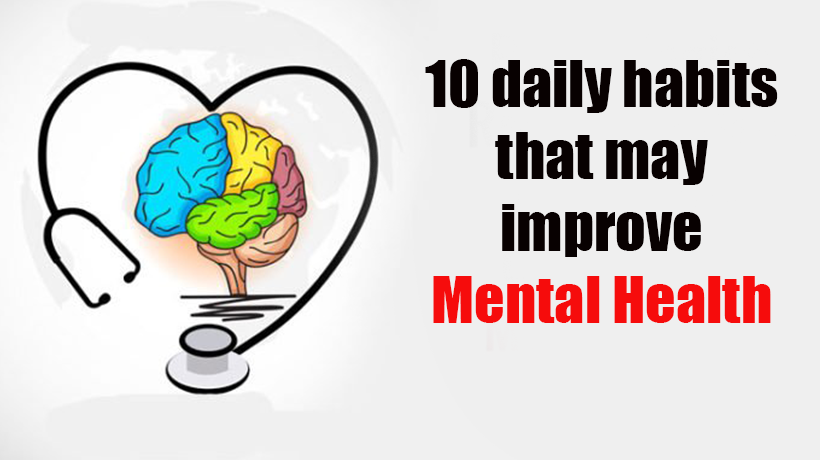According to the National Institute of Mental Health, nearly 1 in 5 adults in the United States live with a mental illness; however, the importance of mental health may be overlooked in comparison to that of physical illness. Conditions relating to mental illness vary in degree of severity, ranging from mild to moderate to severe.
Mental wellness is a factor that influences every area of one’s life, and just as we must be attentive to the health of our bodies, we must also pay due diligence to the health of our minds.
While improving our mental wellbeing isn’t as easy as picking up some dumbbells or going for a run, there are things you can use to alter your habits and improve the quality of your mental health. Here’s a list of 10 things you can do daily.
Avoid multitasking
First thing’s first. Multitasking is a chore for your brain; it drains your mind’s energy reserves and can also spike up your stress levels. Both of these factors could directly influence the state of your mental health. Instead of trying to complete three projects at once, take a breath and focus on one at a time.
Keep a gratitude journal
Practicing gratitude is one of the most useful tricks in increasing happiness and exercising mental health. Even acknowledging the little things you’re grateful for – like eating a delicious breakfast or running into a good friend at Starbucks – can help you see past the negative things in your day that often cast shade over the positive. Keep a journal by your bed and track three things that happened that day that you were thankful for. Aim to make this a practice every evening before you go to sleep
Sleep early
We all know how cranky we can feel after a restless night. However, it turns out that sleep deprivation can directly affect our mental health. According to an article published by the Harvard Medical School, lack of sleep might raise the risk factors for certain psychiatric disorders, like depression and bipolar disorder. So, get in your ZZZs tonight: It’s important!
Start your day with coffee
Yeah, your morning cup of Joe might actually be helping you exercise your mental fitness. According to a study published by the U.S. National Library of Medicine, moderate caffeine intake has been found to elevate mood, as well as increase mental alertness, attention and cognitive function. If you’re not a java fan, you can try another healthy caffeinated beverage, like green tea.
Take little steps
Anxious over a big project? Make it more manageable by dividing your work into small tasks, and congratulating yourself after each accomplishment. You’ll lower your stress levels and complete your work much more efficiently.
Say “I love you”
Love is medicine! Maintaining quality relationships is important for the upkeep of your mental health. By expressing your affection towards someone you value, you’ll remind them and yourself why you’re grateful for their presence in your life.
Do something you’re good at
Organize your desktop. Bake a really good cupcake. Exercise your strengths, celebrate your accomplishments and feel proud that you’re good at what you do.
Eat your omega-3s
Do you like fish? One study published in the U.S. National Library of Medicine links these healthy fats to decreased rates of certain psychiatric disorders, like depression and schizophrenia. Sprinkle some flax seeds over your salad to experience one (of the many) health benefits of omega-3 fatty acids.
Share your struggles
Sometimes, a heartfelt conversation with someone who’s been through what you have, be it a life-altering trauma or a stressful assignment at work, can help alleviate the anxiety you feel. It might also help you find a solution to the problem you’re facing, even if that solution means just breathing through the hard things.
Go off the grid for a while
Leave your phone on the counter and go for a good walk. Disconnecting for a while might give you a much-needed vacation from your stressors, and will give you the opportunity to enjoy life in real-time.
*It is advised that those who suffer from mental illness consult healthcare professionals.
Sources:
http://www.mentalhealthamerica.net/31-tips-boost-your-mental-health
https://www.nimh.nih.gov/health/statistics/mental-illness.shtml
https://www.health.harvard.edu/newsletter_article/sleep-and-mental-health
https://www.ncbi.nlm.nih.gov/pubmed/20164571
https://www.ncbi.nlm.nih.gov/pubmed/15907142



